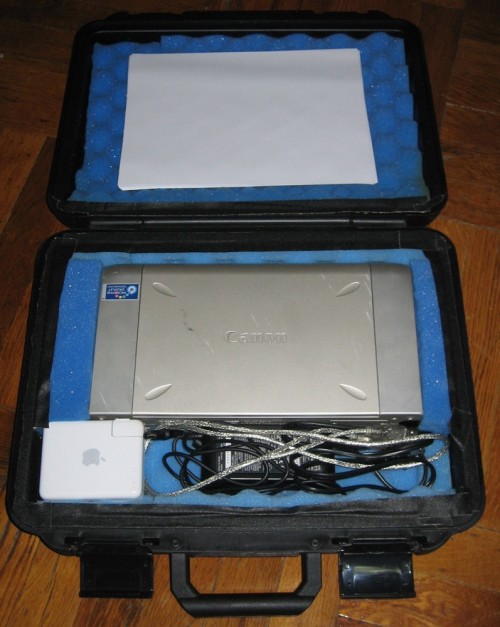So since my first day with the Rubik’s Cube which concluded with me spending two hours at home fixing it, I think I have had a total of one day of rehearsal which did not involve me having to solve the cube at least once. Many days I have had to do it two or three times. I have saved the site I use to help me to my Treo’s web browser, so I can call it up during rehearsal to fix the cube as we work. Since my duties right now basically consist of taking prop notes and being on book, any time we stop to talk about blocking or character work, I use that time to follow the directions and fiddle with the cube. Of course viewing a graphically-intensive page on such a small screen can get confusing, especially when the diagrams to show the moves don’t all fit on the screen at once. I have hopelessly screwed up an almost-solved cube numerous times because I got distracted at some point and obviously did something wrong.
Today I realized the need for a cheat sheet, and I made a crude pencil one during rehearsal, which worked very well. Tonight I arranged the graphics from that site into a concise page, which should eliminate a lot of the delays in restoring the cube during rehearsal.
The actor who uses the cube in the show has really taken to it, and perhaps due to the fact that he spends a lot of rehearsal sitting around, has come up with a good system to screw up the cube enough that it appears to be sufficiently jumbled-up, but he can solve it in six moves without getting confused. Unfortunately our cube is rather cheap and gets jammed a lot — it’s quite comical that when he practices he solves the cube easily while delivering his dialogue, but as soon as he gets in front of the director, the cube refuses to work smoothly and makes the whole endeavor look like a bad idea. But we’re confident we’ll get it to work. I’ve been trying to break the cube in for him during rehearsals when he’s not around. Which is how I got it screwed up today — the first time. The second time was because my PSM was messing with it and handed it to me saying, “Here, see if you can figure it out — it’s only two moves away.” I failed. Miserably.
I hate doing props, but one nice thing about it is that you can pick up really random skills.


 So my show has a Rubik’s Cube in it. And it needs to be solvable on stage by the actor in just a few turns. How exactly this is going to be set up so it works every night, we haven’t quite figured out yet. My instinct is to let the actor take it home and play with it, and figure out what works best for him. There’s been some concern about the possibility of the Rubik’s Cube getting hopelessly mixed up, but I assured everyone that in the unlikely event something happened to it, there are sites on the internet that show you the moves necessary to solve it. No big deal.
So my show has a Rubik’s Cube in it. And it needs to be solvable on stage by the actor in just a few turns. How exactly this is going to be set up so it works every night, we haven’t quite figured out yet. My instinct is to let the actor take it home and play with it, and figure out what works best for him. There’s been some concern about the possibility of the Rubik’s Cube getting hopelessly mixed up, but I assured everyone that in the unlikely event something happened to it, there are sites on the internet that show you the moves necessary to solve it. No big deal. I’m about to start rehearsals for a new show, which has got me thinking about getting all my goodies set up to take with me to rehearsal. One of my favorite ways of making things more efficient in the rehearsal room is to set up my own wireless network for the use of the stage management team, creative team, or even the actors who want to use a laptop or other wireless device on their breaks.
I’m about to start rehearsals for a new show, which has got me thinking about getting all my goodies set up to take with me to rehearsal. One of my favorite ways of making things more efficient in the rehearsal room is to set up my own wireless network for the use of the stage management team, creative team, or even the actors who want to use a laptop or other wireless device on their breaks.
